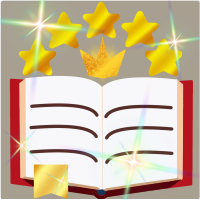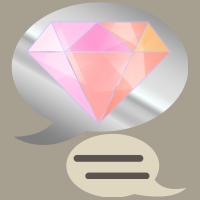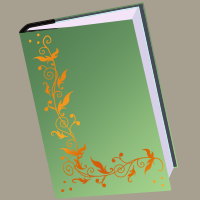Jan 26, 2024
The common issue with love stories based on the mc "glowing up" is that most of them simply try to fit him into societal standards that are actually too narrow to make them stand out as individuals, bypassing any psychological development/ profond changes in the character. In the end, all we get is a blank plot focused on appearances and the approval of others. Two goals which, if achieved by the mc, are intented to radically change his life and solve all his problems.
Fortunately, that's not the case here c:
Because, here, our mc isn't glowing up, he is evolving, trying to free himself from these standards. Standards he had locked himself into, but also standards he had been locked into. Standards that go beyond mere "beauty".
To that end, I really like the fact that you've marked his evolution by gradually reintegrating color into his life. As a child, he was full of color, then abruptly kicked it by switching to black and a more " dark" behavior - the climax of hiding his true identity - and then to "neutral", not stirring up any waves with his behavior or the way he dresses. And then, finally, he gradually incorporates color again as he "evolves" and learns to love himself. (By the way, I think that "learning to love yourself before loving someone else" is one of the most beautiful morals you were able to portray )
Talking about the plot and the overall construction.
Actually it was really clever to highlight their encounter in the first chapter, in that it actually happens about halfway through the story, so the reader doesn't really have this impression of "length" .But what was even more interesting was to put in a second one (when the protag finds Rika on social networks / their 1st encounter) because it keeps the reader on the edge of his seat and adds a bit of pace.
Perhaps, to give a little more volume and depth to your story and character development, it would have been a good idea to linger a little longer on a moment when our protagonist ventures outside being himself (apart from the episode where he's disguised as Princess Marguerite ) to see his feelings in "action", in the present moment, faced with the gaze of others (is he going to be the object of criticism, what impact will this have on him/how did he live through it, were his feelings as different as before? ) Or "dwell" a bit on Rika's feelings towards both our protagonist and her ex-boyfriend. ( how did she come to this conclusion, will he come back to see her? If so, how will he react to seeing Yuuma given his way of thinking about genders etc.. / see how her feelings toward Yuuma gradually emerge, etc. ).
I think there was definitely room to dig a little deeper into the concept of love and loving someone for who they are through these different relationships and characters. Nevertheless, it's only a detail ( and perhaps just me wanting to read a bit more of it )
On the one hand, these questions are answered more or less implicitly throughout the novel. And then, with hindsight, I think Yuuma has somehow stopped, or at least is gradually ceasing, to attach importance to the way others look at him, in that he's beginning to love himself and Rika's presence by his side is erasing all the encompassing pessimism.
Plus, considering the length of the novel, you did a pretty good job. As I said on your yaosobi novel, the thing I particulary appreciate about your writting is how you manage to turn a classic concept into an engaging story. And again, if beauty is found in simplicity, then bits and pieces of it have found their way into this novel ^^
![]()




![]()



